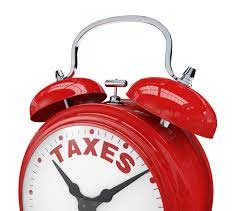 If the year end comes, can taxes be far behind? December is typically a time to assess your life and set goals. And that means taking a close look at personal finances. Scrutinize investments and budgets and go into the New Year armed with a plan for the next 365 days.
If the year end comes, can taxes be far behind? December is typically a time to assess your life and set goals. And that means taking a close look at personal finances. Scrutinize investments and budgets and go into the New Year armed with a plan for the next 365 days.
Tax season may be several months in the future, but don’t allow yourself to be lulled into inaction. There are things you can do before Baby New Year puts in his appearance both to ease this year’s tax load and to streamline for the coming year.
It goes without saying that you update your tax software and gather your documentation well ahead of the deadline. Start off the year as financially fit and tax-ready as possible.
Consider putting more money into a pre-tax retirement account such as a 401(k) or IRA, Keep in mind the 2014 contribution limits: $5,500 for an IRA if you are under 50, $6,500 for those 50 and up. The 401(k) limit is $17,500 or $24,000 if you’re 50 or over.
Donating to charities will lower your tax able income, and there are many opportunities in December. Your tax consultant can tell you how much you can claim in donations, depending on your income. And while you are talking with the experts, discuss how you can optimize your retirement and savings options.
Take a financial inventory so you will have a clear view of how you should approach investments to gain the best tax position for 2015. Learn how much your investment plans will require in taxes now and how much will be delayed until retirement. The experts can help you determine the best plan of action to maximize savings now and when you retire.
It’s possible that you can know your tax bracket but be unaware of your effective tax rate. That’s the percentage of your total income that you are taxed on. If you earn $90,000 and file as a single, you are in the 25 percent bracket. But if deductions lower the total to $80,000, you drop into the 22 percent bracket. Knowing these figures can help you make decisions about your investment accounts.
If you are looking into the future, think about whether you have more retirement funds in pre-tax categories. Might it be worthwhile to do some Roth conversions (which must be done by Dec. 31) so that you can put more funds into a category that will require taxes now. This could prove beneficial over the long term, especially if you expect your tax rate might increase as you age.
Look ahead if you have any suspicions that your tax load next year could be higher. Use your tax professional or good software to assess the figures. Make an adjustment in your withholding if necessary. On the other hand, if the pre-assessment suggests you can expect a refund, lower your withholding amounts.
If you have suffered any losses in investments, particularly in retail stocks, you may want to consider selling those investments, taking the loss this year. You can then write them off as you file in April. The market has generally been good this year, but if you don’t expect an improvement in sluggish investments, unload them. You can write off up to $3,000 per year in investment losses. Study your own situation and see what makes sense.
If you have used a Flexible Spending Account to lower taxable income, check on how much money is left in the account. If you don’t spend the balance before Dec. 31, you will lose it. A Health Savings Account also lowers your taxable income, but the balance can be rolled over from year to year. Try to use up your FSA balance by making necessary doctor appointments, updating immunizations and taking care of other health-related matters before the end of the year.
Everyone’s tax picture looks different, but a proactive approach at the year’s end will help avoid any problems that might have taken you unpleasantly by surprise when April 15 rolls around.